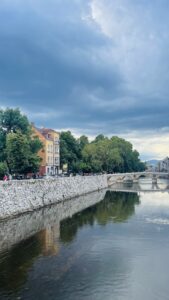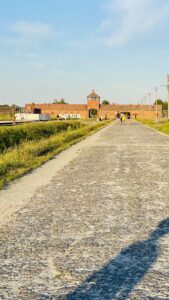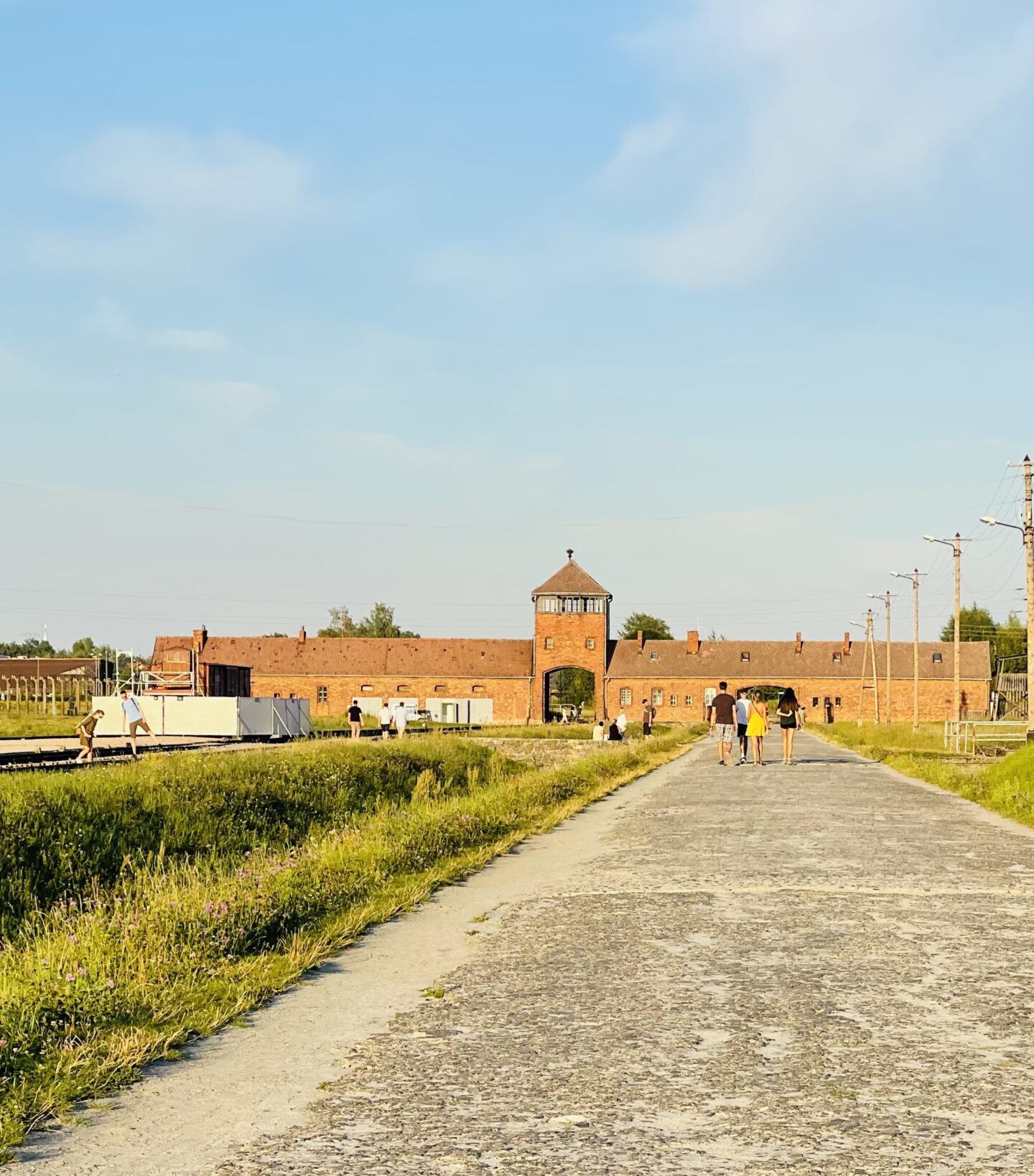Sometimes, the most meaningful journeys are the ones we don’t plan. This summer, I found myself on such a journey, starting in Sarajevo, Bosnia, and winding my way up to Gdańsk, Poland. I didn’t set out with a specific itinerary in mind, but as I moved from place to place, it became clear that I was retracing the steps of history, from the origins of World War I to the aftermath of World War II.
Sarajevo: The City Where It All Began
 Sarajevo is a city where history doesn’t just linger; it lives in the streets, in the buildings, in the very air you breathe. This is where World War I began, and as I walked through the city, I was struck by how visible the past still is. The bullet holes in the walls, the signs of a struggling economy—they all speak to the conflicts that have shaped this region. There’s a tension in Sarajevo, a sense that the wounds of the past are not fully healed. It’s a place that makes you confront history head-on, whether you’re ready for it or not.
Sarajevo is a city where history doesn’t just linger; it lives in the streets, in the buildings, in the very air you breathe. This is where World War I began, and as I walked through the city, I was struck by how visible the past still is. The bullet holes in the walls, the signs of a struggling economy—they all speak to the conflicts that have shaped this region. There’s a tension in Sarajevo, a sense that the wounds of the past are not fully healed. It’s a place that makes you confront history head-on, whether you’re ready for it or not.
Poland: A Nation on Edge
From Sarajevo, I made my way to Poland, a country that has its own heavy history. Gdańsk, in particular, was a stark reminder of how the past can cast long shadows over the present. There’s an unsettling fear here, a sensitivity to the possibility of conflict that feels all too real given the current situation with Russia and Ukraine. Poland’s history is marked by invasions and occupations, and that history feels very much alive today. The people here haven’t forgotten, and there’s a palpable anxiety about what might come next.
Kraków: Confronting the Holocaust
Kraków was the hardest part of the journey. Visiting the sites of the Holocaust, where millions of Jews were murdered, wasov erwhelming. The cruelty and inhumanity of it all are impossible to fully grasp. And yet, standing there, I couldn’t help but think about how these horrors are not as far behind us as we might like to believe. Genocide, ethnic cleansing—these things are still happening today, in places like Gaza and Xinjiang. It’s chilling to realize that the same forces that led to the Holocaust are still at work in the world.
erwhelming. The cruelty and inhumanity of it all are impossible to fully grasp. And yet, standing there, I couldn’t help but think about how these horrors are not as far behind us as we might like to believe. Genocide, ethnic cleansing—these things are still happening today, in places like Gaza and Xinjiang. It’s chilling to realize that the same forces that led to the Holocaust are still at work in the world.
Gdańsk: A City of Contrasts

Gdańsk was a pleasant surprise, a city that felt worlds away from the heavy history I had been immersed in. The summer tourists, the beautifully restored buildings, and the charming old town all create a leisurely vibe that almost makes you forget this was the very place where World War II began. The city is lively and full of energy, a testament to its recovery and resilience. I loved Gdańsk; it’s such a lovely town, with a warmth and character that draws you in.
But then you walk into the World War II Museum, and the reality of what happened here comes rushing back. You’re reminded of the tragic history that unfolded not just in this city, but across the entire region. The pain, the suffering, the lives lost—it’s all still very real, and it’s impossible to ignore. As much as I enjoyed Gdańsk, the contrast between its current beauty and its dark past was a stark reminder of how fragile peace can be.
Reflecting on History and the Present
This journey was supposed to be a simple trip through Eastern Europe, but it turned into something much more profound. It was a stark reminder of the fragility of peace and the ease with which we can slip back into darkness. The lessons of history are not just about what happened back then; they’re about what could happen again if we’re not careful. The past is never really gone. It’s something we carry with us, and it’s up to us to decide how we’ll use it to shape the future.
This trip has left me with a deep sense of responsibility—not just to remember the past, but to speak out against the injustices of the present. We can’t afford to forget what happened in Sarajevo, in Gdańsk, in Kraków. And we can’t afford to ignore what’s happening today, in places far from here but not so different in the suffering they endure.
If there’s one thing this journey has taught me, it’s that history is not something we can leave behind. It’s something we must confront, again and again, to ensure that the tragedies of the past are never repeated. And as much as I love Gdańsk, I’m reminded that all of this—this beauty, this peace—could be gone overnight by the decision of a dictator. Peace is fragile, and we must fight to keep it.

